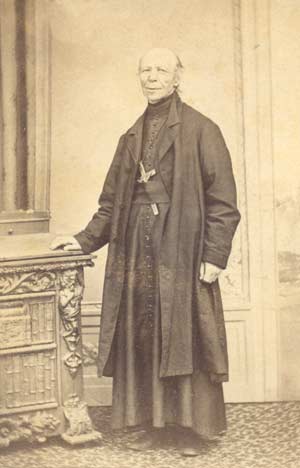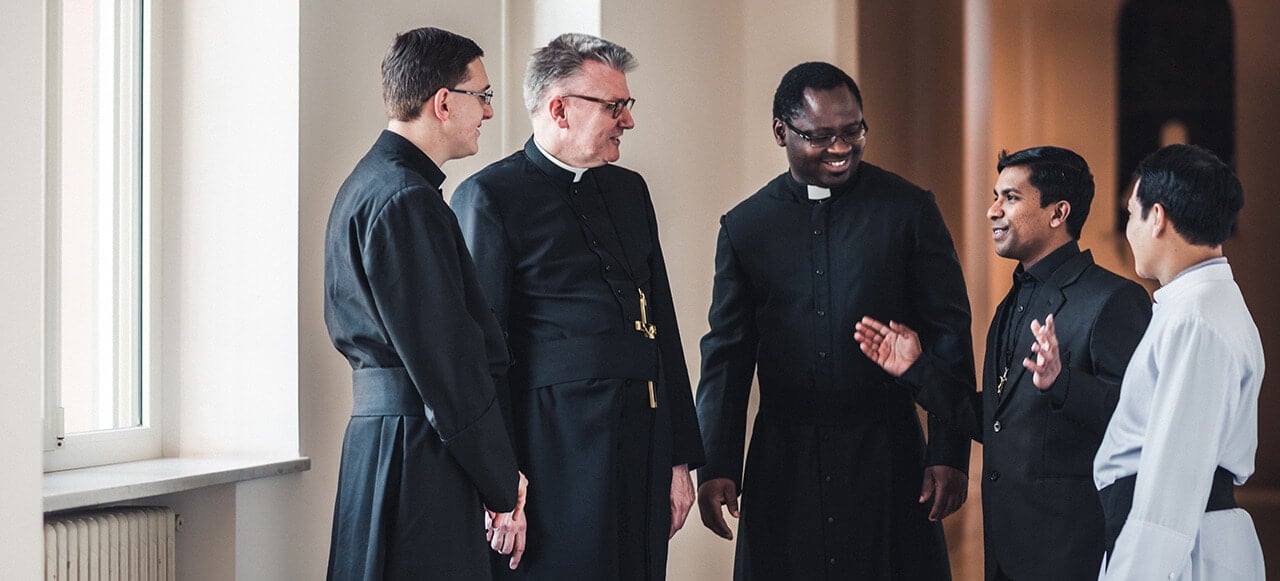To paraphrase a word of Pius XI, we could say: “The best garden to produce fruits of holiness is really the Christian family.” Let us take for example the family of Eulalie Durocher who Pope John-Paul II declared Blessed on May 23, 1982. This family gave the Church three priests and two nuns. In addition to Eulalie, the youngest of ten children, who became the foundress of the Sisters of the Holy Names of Jesus and Mary, we should mention her big brother, Flavien, an Oblate of Mary Immaculate. Initially a missionary among the Amerindians at Oka and on the North Shore, in 1853 he founded the parish of Saint-Sauveur in Quebec. When he died in 1877 at the age of seventy-seven, his reputation of holiness was established not only at Saint-Sauveur but in the whole city. He was called “Holy Father Durocher”.

Flavien DUROCHER
A word given
“At the time of the great rally, he says, I took up arms and went to Saint-Antoine-sur-Richelieu. I stayed at the house of a man called Durocher, precisely the father of the Reverend Flavien Durocher, priest of Saint-Sauveur. I had seen some beautiful corn around there. Ten years later and married, I told my family that I wanted to go get some corn. I had no money. I left all the same and went to Saint-Antoine. I arrived, knocked at the door and entered: “Hello everybody! Do you recognize me? I am one of the soldiers who pensioned here three days, ten years ago.” “Nobody recognized me except for a girl who had noticed me more than the others. She recognized me and said to Mr. Durocher: He is the one who said that he would come back to get some corn and a woman. “Precisely, I said, I come to fulfill my promise, at least for the corn.” This last word was meant to tease the girl who was near thirty. “But, Mr. Durocher, I have no money; I promise you though that I will pay you next year on All Saints’ Day.” “Oh! That’s no problem, he answered, the money is not important; you will have all the corn you want.” He gave me my corn and I gave him my word. Just like that, no paper, nothing. I returned home, forgetting even to give him my name. Well, the following year, on the eve of All Saints’ Day, I was there with my money.
A word kept
Yes, just on the eve of All Saints’ Day, believe it or not! As for me, it was no surprise to be there: I had to be there. But what shows how seriously we took a man’s word, was to see upon entering a bed ready for a stranger and the whole family in their Sunday best. “Ah! Sir, he said to me, we knew that you would come; we’ve been waiting for you since morning; a Canadian never breaks his word.”
Hearing this tale, Fr. Lacasse could not hide a couple of tears that ran down his cheeks. The old man with the white hair noticed. He sat up in his chair and said solemnly: “We had our faults, but at least we were honest!”
André DORVAL, OMI
